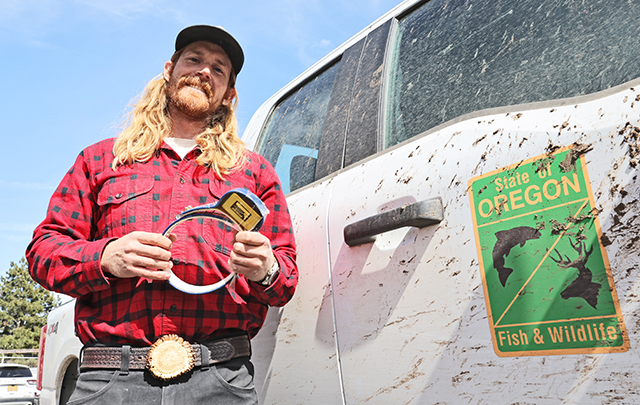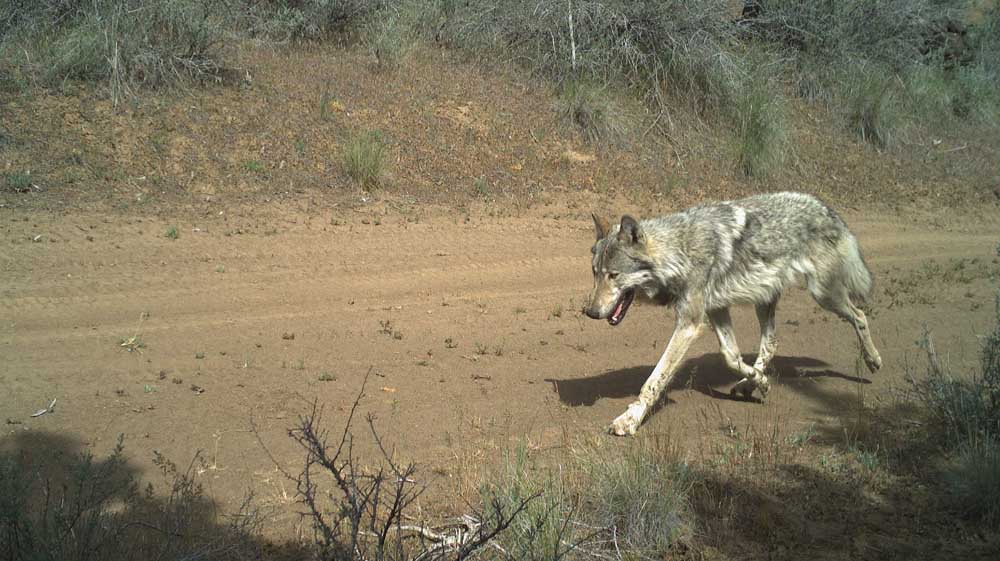Wolf kills calf in eastern Deschutes County
Published 5:45 am Thursday, May 1, 2025





The Oregon Department of Fish and Wildlife has reported this year’s first killing of livestock by a wolf in Central Oregon. The incident involved a transient lone wolf and a 3-day-old calf on a 1,500-acre public land pasture north of Brothers.
That is the determination made by ODFW biologists who investigated the incident on March 17. The calf was likely killed around six hours before the investigation, according to a report.
The wolf believed to have killed the calf had been monitored by the agency for several months in at least two counties, according to Aaron Bott, an ODFW wolf biologist. The agency does not report the names of the ranchers expected to receive compensation for livestock killed by a wolf.
Trending
“The producers involved with this incident are competent and hard working, and we have collaborated with them and neighbors to mitigate the risk of further depredation. We will continue to offer them support,” Bott said in an email.
“Calving is particularly a difficult time for ranchers, as early spring weather and predators, including coyotes, cougars, (and) bears, can be challenging for young livestock,” Bott added.
The grey wolf involved in the incident is a native species in Oregon. Hunters eliminated Oregon’s wolf population in the early 1900s through bounty programs, but their numbers have returned in recent years following the dispersal of wolves introduced to Yellowstone National Park and Idaho in the 1990s.
Deschutes County has a committee through which ranchers can apply for state funds to compensate producers who lose livestock to wolves. Those funds are sourced from the Oregon Department of Agriculture.
Compensation for the March depredation is expected to be for the full market value of the calf, said Bott. Funds are typically disbursed at the end of the year.
Additional funds for tools and resources offered by the state to prevent wolf attacks are also available for producers. These become available at the beginning of the year.
Trending
Earlier this year, Deschutes County was allocated $50,000 to distribute to three east county ranchers to pay for wolf deterrents. Some of the funds were also put towards a county-wide program to remove animal carcasses that might attract wolves to areas being used by livestock.
The calf kill near Brothers was not the first wolf-livestock encounter to occur in Central Oregon this year. In January, ODFW confirmed that a 9-month-old calf was injured by a wolf known as OR158 on a 550-acre private land pasture in Crook County.
The OR158 wolf — later found responsible for multiple calf kills in Lake and Baker counties — was lethally removed by wildlife officials in February.
As the number of wolves in Central Oregon increases, they are also subject to attack by humans. This was recently evident when the male adult of the Metolius pack was poached in March. A large reward from nonprofits and the U.S. Fish and Wildlife Service was offered to anyone with information about the poaching incident but to date no arrests have been made.
Deschutes County Commissioner Phil Chang, a member of the county’s Wolf Depredation Compensation and Financial Assistance Committee, says even though wolf numbers in Central Oregon are increasing, instances of depredation can be managed.
“The state and federal funds and the dedicated group of problem solvers who make up the Committee will really help us reduce the wolf-livestock conflicts in the coming years,” said Chang.
Reducing conflict between wolves and ranchers includes the installation of various deterrents meant to scare wolves away from cattle.
Deterrents include fencing as well as light and noise devices. Non-lethal munitions are also employed to haze wolves, including propane cannons, cracker shells, rubber bullets, paintballs and bean bags.
At a meeting in April that convened members of the Wolf Depredation Compensation and Financial Assistance Committee, Chang said Central Oregon is at a “tense moment” as the number of interactions between wolves and ranchers are rising.
Chang said the efforts underway in Deschutes County to reduce depredations and poaching could be a model for other communities in Western states.
“This committee is the best thing for this community to deescalate these tensions,” said Chang. “We know how to reduce depredations as much as we can.”















